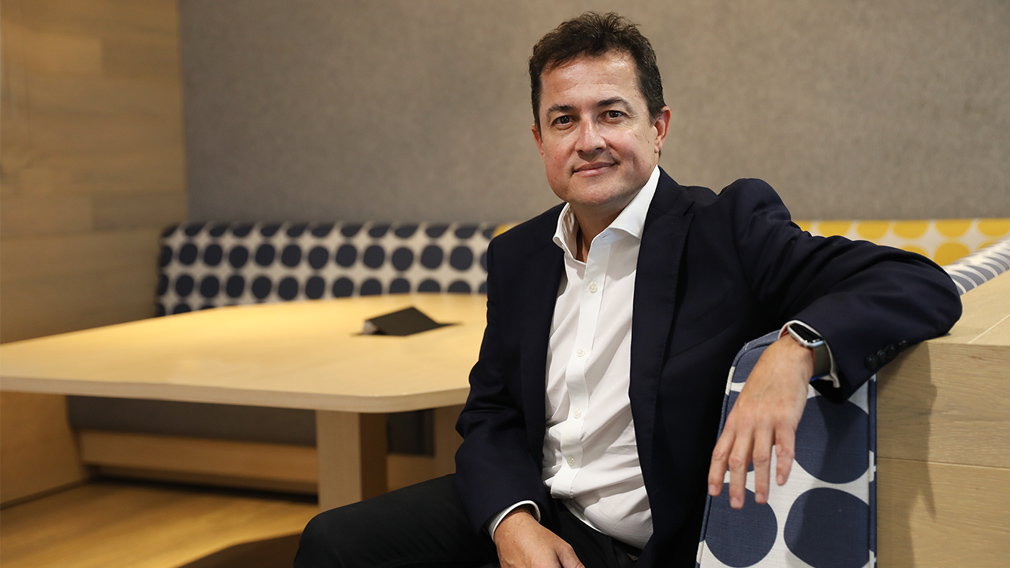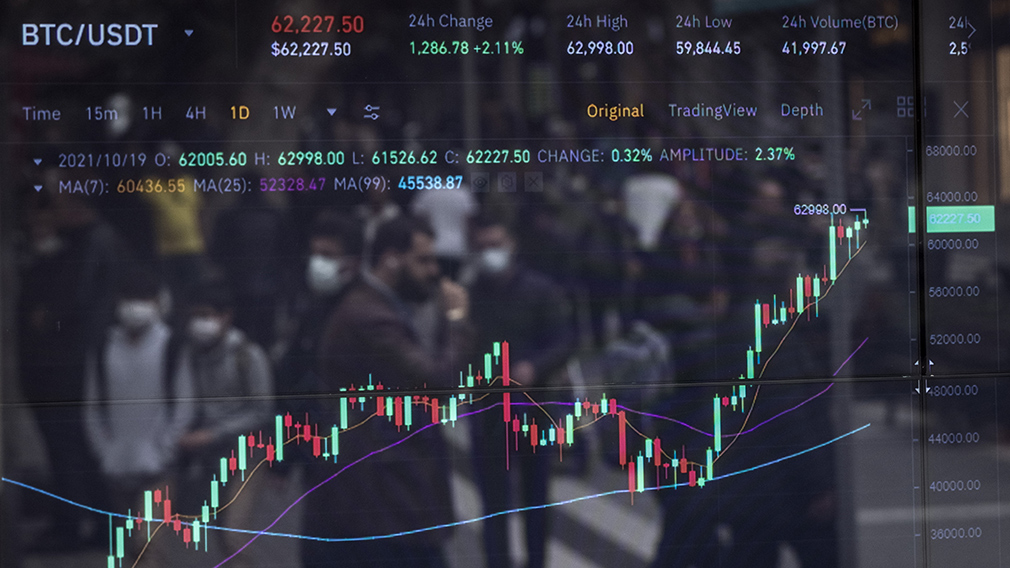Fancy a ‘brain date’?
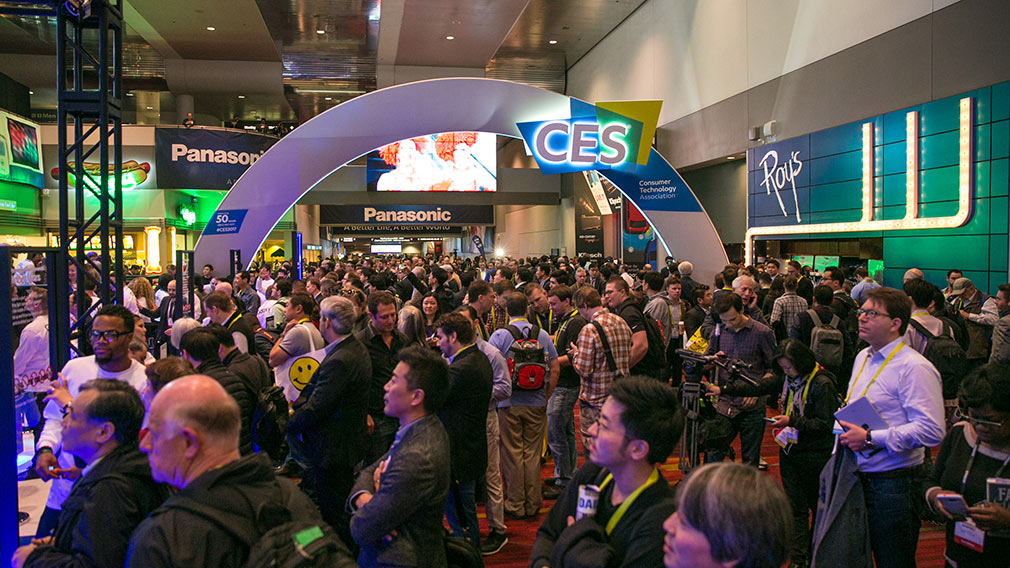
Delegates at a previous Consumer Electronics Show in Las Vegas, one of the world’s biggest in the sector attracting around 200,000 people each year. (Getty)
When Peter Jack was prompted by an app to name the one person he would most like to have dinner with, he chose the ancient Egyptian ruler, Ramesses the Great. Attending a conference in Montreal, he was soon paired up to network with six other people equally fond of the pharaoh.
Clearly, this wasn’t his usual conference experience.
“We would never have connected at an event like that with 6000 delegates. Going into those conversations with a shared interest removed the barrier to networking: it got rid of any fear,” he says of the Braindate app, dubbed a “Tinder for thinkers”.
So impressed by the professional matchmaking app, Jack began looking for an opportunity to introduce Braindate to Australia via his company, EMG Events Agency, seeing an opportunity ahead of the agritech conference evokeAG in Melbourne last February.
“evokeAG is unique because it brings together the entire ecosystem of the agtech sector, including farmers from remote areas, start-up founders and investors,” he tells Westpac Wire.
“Normally these kinds of events run in silos, whereas I wanted to connect all of the brains trust and break down any barriers so that people had real conversations.”
However, would the 1200 delegates share Jack’s enthusiasm for “brain dating”, a concept few – if any – had heard of?
Alert to the “gamble” given Australia’s events market isn’t yet as tech-savvy as the United States and Europe, EMG arranged for 100 members of its stakeholder group to get active on the app before releasing it to other delegates. Jack even flew out the Montreal-based company behind the Braindate app, e180, to Sydney where they worked with a team of developers to integrate the Braindate app with the evokeAG event app.
Jack’s boldness paid off, with 105 one-on-one dates and 27 group dates held on the sidelines of the conference.
“Everybody is sick of standing up with a glass of wine feeling awkward, trying to bump into the right person,” says Christine Renaud, the CEO and founder of e180.
Futurist Chris Riddell went on three 45-minute group brain dates at evokeAG – which Westpac took part in as a partner – and described the conversations as “exceptionally stimulating”.
“I wouldn’t say that Braindate is disrupting the networking industry. I think ‘disrupting’ is one of our most overused words. I’d instead say it’s an evolution.”
Since Braindate was first launched at the C2 Conference in Montreal in 2013, the app has been downloaded 400,000 times and used at 140 events globally. In Australia, the next brain dates will be held at the Digital Innovation Festival in Melbourne from 23 August and at CEBIT in Sydney in October.
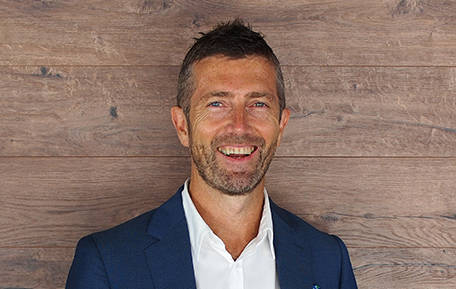
Peter Jack says he avoids drawing comparisons between Braindate and Tinder. (Provided)
According to tech writer Greg Oates, while other tech companies have attempted to develop cloud-based personal connectivity platforms to create a better networking experience, Braindate is the only one to have come up with a user-friendly solution.
The app has proven popular because it removes much of the uncertainty associated with traditional networking. Even the most gregarious of businesspeople tend not to relish the idea of blindly working a roomful of strangers, some conversations being awkward or an entire evening yielding no worthwhile results.
Renaud describes brain dating as “coordinated networking” because it helps people to maximise their time. Before attending a conference, Braindate participants list their professional skills, personal interests and hobbies. A clever algorithm then suggests potential matches for either 30-minute one-on-one brain dates or 45-minute group brain dates that involve up to four people.
“For years we've had social networking platforms like Facebook and Twitter where you can connect with other people,” Riddell says.
“But they don’t allow you to intelligently match your skillsets and personality. That’s where Tinder killed the market. There are some very transportable elements of the huge success it had that are being applied to the business world.”
Despite comparisons to Tinder, Jack says he avoided drawing comparisons with the dating app when pitching it to evokeAG delegates.
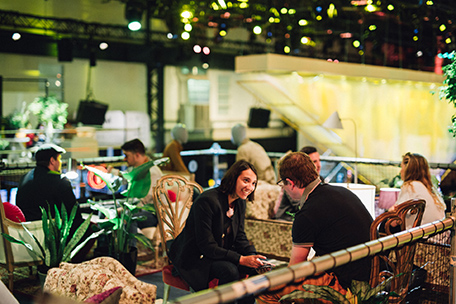
e180’s Braindates app facilitates interactions one on one and in groups. (Provided)
“If you're a millennial, something like Tinder is very common, but in our audience it may have been seen as a negative as opposed to a positive.”
Riddell believes the technology behind Braindate could be applied to any number of industries. In sectors such as recruitment, algorithms are already replacing the need to sift through thousands of CVs.
“I think we're going to see more and more of these types of platforms emerge in other parts of the business world. We can do things so much better with the phenomenal amounts of information that is now available to us,” he says.
Renaud says light-heartedly that while she missed the “whole online dating thing”, it did play a part in inspiring Braindate after noticing the time friends put into online dating profiles to improve the conversation when meeting people in real life. She says Braindate asks participants to go a step further by establishing the context of conversations through its “Topics Marketplace”, such as a specific challenge they face or expertise in solving one, before algorithms then come up with a list of topics likely to be of interest.
“You can’t just write something like ‘creativity’ because there would be 5000 people who come to an event to talk about creativity. It wouldn’t mean much,” Renaud explains.
“We prompt people to dig deeper and say: ‘What I can share with you is how to do this, or this’.
“But we don't do the matchmaking. It is the individual who has to go and ask as many people as they wish on brain dates, and then of course, wait for the reply.”
The views expressed are those of the author and do not necessarily reflect those of the Westpac Group.


